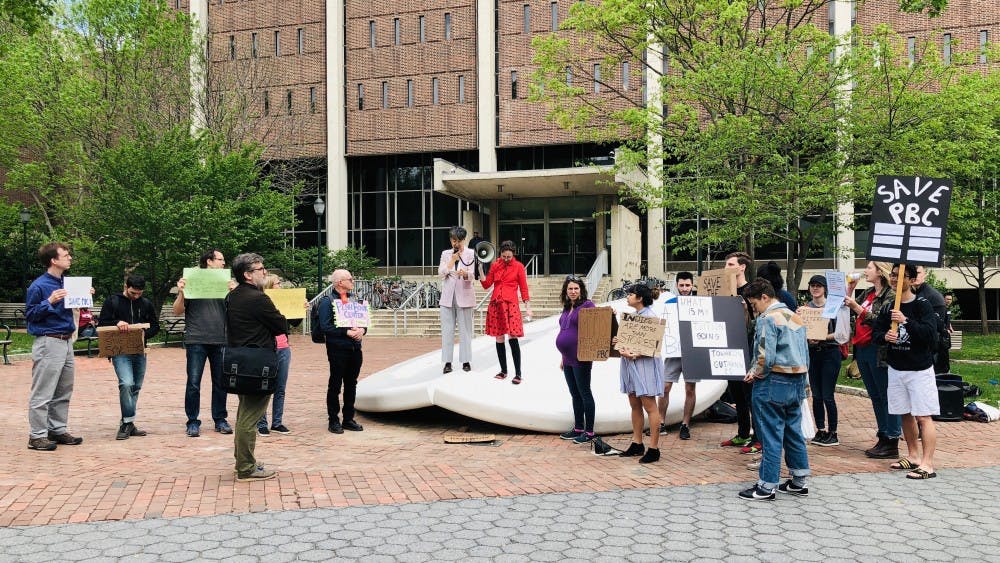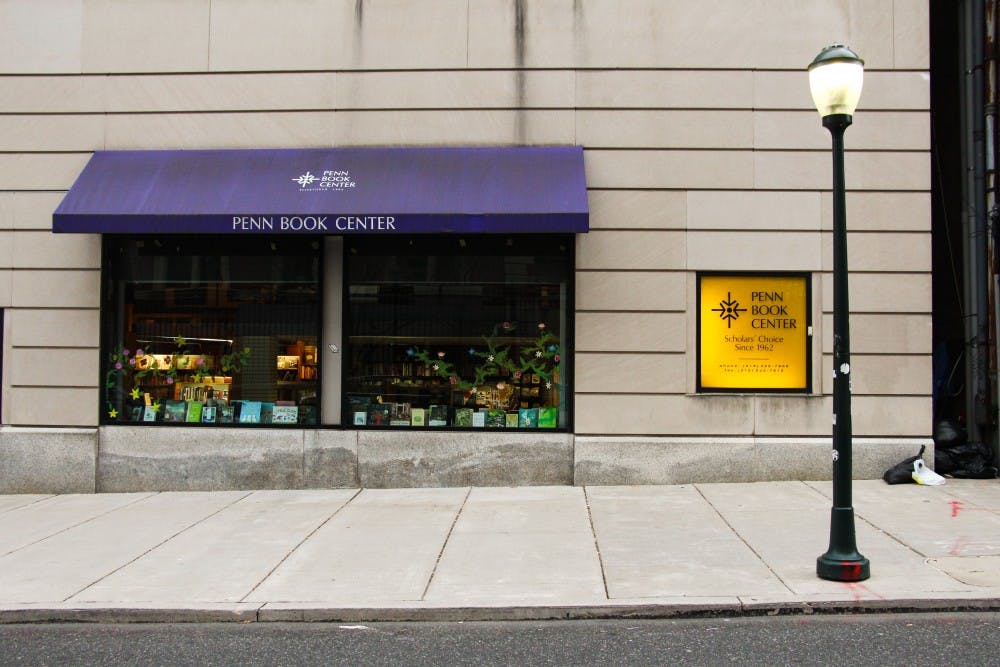
After half a century of serving university students, professors, and the greater Philadelphia community, the Penn Book Center will be closing down this May, citing the growing market power of online retailers as the impetus for this decision.
Shortly after this announcement, Penn students and educators in the humanities spearheaded a campaign to show our university’s administration the integral role independent bookstores play in upholding a vibrant intellectual campus culture. In a matter of two weeks, a change.org petition created by English Professor Chi-ming Yang garnered over 4,000 signatures, demonstrating a clear desire from the undergraduate and graduate student body to save a beloved gatekeeper of knowledge for the public. This week, protests have been taking place every day of the week day from 12PM to 1PM in front of the Button.
As the undergraduate liaison to this allied cause organized by my academic peers, Penn faculty, and Philadelphians, my admiration for the Penn Book Center has only grown. Unlike its neighboring book stores such as The Last Word and House of Our Own, which primarily focus on collecting and selling used literary texts, the PBC has a stock of both under-appreciated and canonical works of fiction, non-fiction, and more. For undergraduates completing interdisciplinary papers, research projects, or honors theses, the wide selection that indie sellers like the PBC offer only helps in the writing process.
Of course, some students have not yet experienced the joys of perusing the meticulously curated aisles of the PBC. So, why should this independent bookstore deserve an economic partnership from Penn, and how would undergraduates benefit from such a symbiotic relationship?
The owners of the Penn Book Center announced last week that the store would be closing after nearly 60 years in business.
For starters, the financial troubles of brick-and-mortar stores like the PBC have largely been exacerbated by the decision making of Penn, which has allowed for Amazon to have a home nested right on Locust Walk, making both the Penn Book Center and Penn Bookstore enter into direct competition with one another for textbook sales. Without the large scale patronage that the PBC once enjoyed for decades from college students seeking coursebooks, foot traffic to the shop incrementally decreased. Without the initial purchase of a required textbook, which retains first-time customers, undergraduates became less and less conscious of the fact that a place like the PBC even existed right on 34th Street.
By early 2017, the PBC was forced to change their business model entirely, taking course books out of their inventory to focus on hosting community literary events with locally and nationally acclaimed authors and academics. However, without any tangible support from private institutions, local shops do not stand a chance against corporations like Amazon, which hold market caps of $1 trillion dollars. Simultaneously, initiatives like Shop At Penn are actively transforming the University City area, slowly making indie sellers unable to survive growing rent prices.
Penn President Amy Gutmann and the administration must realize the ideological and moral imperative to support one of the last bastions of intellectual culture on our campus. For countless undergraduates in the social sciences and humanities, most organizations at Penn are simply inadequate in fostering critical thinking outside of the classroom, as they largely cater to the pre-professional ambitions of students interested in jobs in finance, law, or the hard sciences. As a result, non-campus sites such as the PBC serve as both social and literary spaces to find thought-provoking reading material, to speak to others with similar interests, and to attend events for local writers who do not find financial success in retailers such as Barnes and Noble. While the Penn Bookstore may have a handful of texts by T.S. Eliot or Joan Didion, publicly-traded book giants simply do not have the capability or drive to supply the gems that indie sellers work assiduously to find. Unlike algorithmically-generated book advertisements on Amazon or Facebook, which solely strive to drive consumption, the PBC and its workers have a desire to point patrons in the direction of texts that they would meaningfully enjoy and actually hold the expertise to do so. If we would like to maintain our reputation as a leading academic institution for groundbreaking intellectual work, then we must allocate the resources to support our local book shop, which Ivy League universities such as Princeton have already done.
Fundamentally, our administration must grapple with the fact a sizable portion of its students majoring in fields such as English, Africana Studies, Comparative Literature, and Classics are not entirely fulfilled by the handful of campus spaces made for us, such as the Kelly Writers House. If they allow the PBC to close down in the next month, this would send a pointed message to undergraduates across countless departments that our academic passions must take a backseat to profit. Already, students in the humanities feel as if their work is undervalued within the private university system, which largely advertises STEM and business degrees to prospective students. As a campus with the nation’s leading business concentration in Social Impact & Responsibility, we should feel obligated to find room in our $3.4 billion dollar budget to economically subsidize a space that supports an unheard student body.
AVNEET RANDHAWA is a College sophomore from Houston, Texas studying English. Her email address is avneet@sas.upenn.edu.
The Daily Pennsylvanian is an independent, student-run newspaper. Please consider making a donation to support the coverage that shapes the University. Your generosity ensures a future of strong journalism at Penn.
Donate




